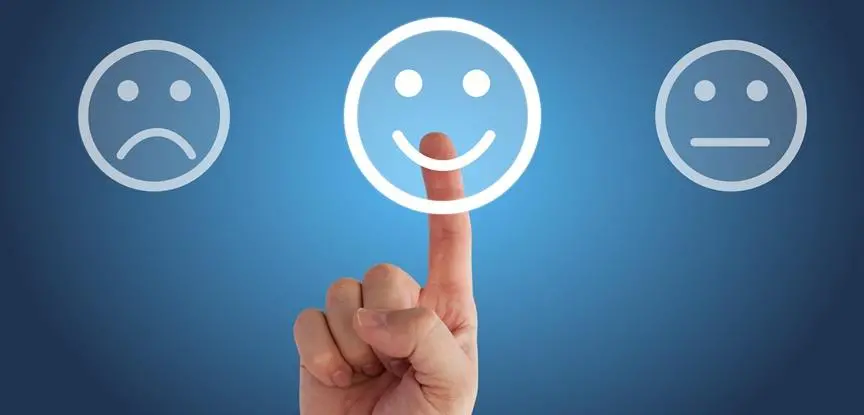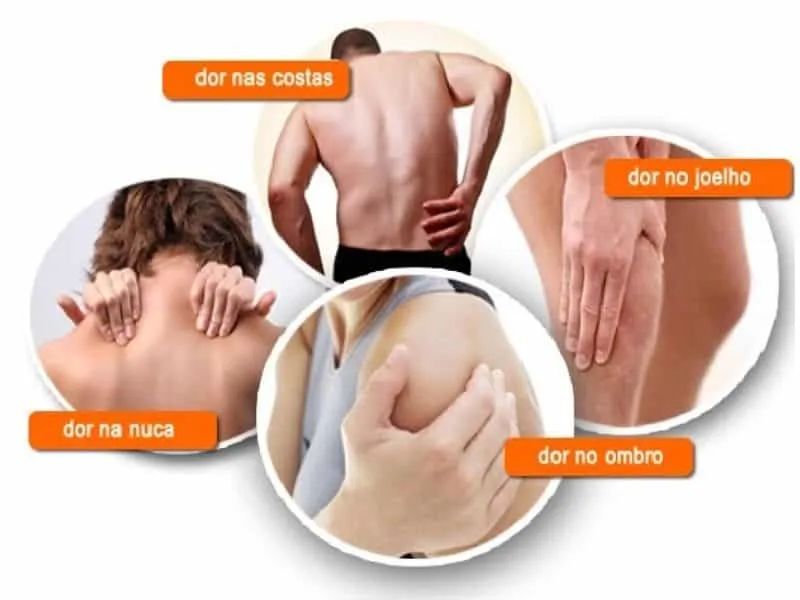Emotional pain is physical or mental discomfort of psychological origin, caused by changes in a person’s emotional state.
You know that recurring headache or back pain that you feel almost every day? Have you ever stopped to think that these discomforts could be caused by your emotional state? It’s not every case, but this happens a lot, called emotional pain.
The explanation for this is that our body is a unique system, that is, the physical and emotional state are interconnected, therefore, what affects one, consequently affects the other. There is no way to simply disassociate them. Therefore, what affects the body will have emotional effects, as well as the emotional state on the body.
As uncomfortable as pain may be, it is an essential mechanism to show us that something is not right. Without pain to alert us, we would do a lot of damage to our body without any warning. Emotional and physical pain works like a kind of dashboard in a car, which through the lights indicates that the gasoline is running out, or that the engine is too hot or that something is wrong with the vehicle.
However, in the case of emotional pain, it is still a delicate subject, which raises many doubts, as it does not have a visible cause in an exam, for example. But the fact is that they exist, and many pains without an apparent cause can actually be caused by the patient’s emotional state.
Therefore, today we will better understand what emotional pain is and the influence of the emotional state on physical health.
The emotional pains

It’s common for everyone to try to monitor the physical pain we feel throughout our lives. As previously mentioned, pain is a warning that something is not right in our health, but we do not always connect this to a troubled emotional state. Emotional pain can be caused by several factors, such as feelings of sadness, anxiety, anguish and depression.
Despite directly affecting our lives and our bodies, mental health is still a topic that is somewhat neglected by many people, due to a prejudice that they are not real problems. But yes, they are, proof of this is the emotional pain.
Emotional pain is a feeling of physical and mental discomfort of psychological origin, incited by harmful emotional experiences. Such as pressure at work, family problems, rejection, trauma or loss, among others. However, the causes of pain are not always related to negative events.
When investigating the causes of a specific pain, doctors use tests to analyze the various systems that may be related to the discomfort. Through exams, possibilities are discarded in search of the real diagnosis. In general, pain can be caused by viruses, bacteria, genetics, inflammation, accidents, poor diet and harmful emotional states. Only a specialist will be able to give a correct diagnosis in these cases.
Influence of emotional state on the body

No one is exempt from suffering from a situation of great stress, whether at work or at home, frustration when something doesn’t go as planned, anxiety about something important that is about to happen. All of this generates a growing feeling within us, becoming a psychological pressure that is difficult to bear. When this happens, it is normal for symptoms to appear that attack the physical body.
Therefore, these pains are directly related to the emotions we are experiencing. These symptoms can be signs of two types of illnesses: psychosomatic, that is, which is detected in laboratory tests, or somatization, which does not present any changes in clinical tests, but is still felt by the patient.
In the case of psychosomatic illnesses, the causes may have a physical origin, with detectable symptoms, but still originate in the mind. Many pathologies do have an organic explanation, but are influenced by the person’s mental state. Clear examples of this are gastrointestinal tract symptoms, which have an inflammatory origin, but can still be influenced by stress and anxiety.
As for diseases that result from a somatization process, it is common for the patient to present one or more physical symptoms, but these are not explained by an organic condition, such as chronic pain with no defined cause.
How do emotional pain occur?

Stress is one of the emotions that most affect physical and mental health. In situations of high stress, it is common for muscles to become tense, resulting in specific pain. Tension, on the other hand, increases the level of cortisol in the blood, consequently altering the heart rate.
Another common cause is emotional changes related to feelings of sadness and depression, when the person tends to be unmotivated, with the wrong posture and sedentary, resulting in muscle pain, for example. The most affected regions are the cervical, thoracic and lumbar, since it is the spine that supports the body. Therefore, the back ends up receiving a greater load in situations of stress and emotional changes.
It is also common, in the case of psychosomatic illnesses, to present changes in sensitivity, causing pain, tingling and even unpleasant thermal sensations. For example, in situations of great stress, it is common for people to experience intestinal discomfort, such as constipation or diarrhea, colic, among others. These diseases can manifest themselves in different ways, such as:
- Gastroenterites: ulcer, gastritis, colitis;
- Respiratory diseases: asthma, bronchitis;
- Cardiovascular problems: high blood pressure, tachycardia;
- Inflammatory processes in the joints: arthritis, arthrosis, tendonitis, rheumatism;
- Dermatological problems: vitiligo, psoriasis, dermatitis, herpes, urticaria, eczema;
- Migraines and vertigo.
Main emotional pains

The state of emotional tension can be caused by several reasons, such as work, marriage and relationships, family and financial issues, among others. As well as loneliness, rejection, trauma and loss, low self-esteem, etc. All of this may be related to recurring physical pain.
Check out some of the most common pains related to emotional state below:
- Headache: very common during tension spikes and excessive worries.
- Neck/neck pain: caused by emotional tension, conflicts to rationalize feelings, pressure to make choices.
- Muscle aches: very common, the result of a lot of tension and accumulated energy.
- Shoulder pain: Excessive tasks, fear, insecurity and shyness, all of this can result in discomfort in this region.
- Back/lumbar pain: high load of stress, demands and emotional tension.
- Joint pain: tendinitis or osteoarthritis, caused by peaks of tension, fear and insecurity, feelings of impotence and inflexibility.
- Stomachache: anxiety, worry, irritability, hurt and tension.
- Knee pain: physical and emotional overloads, conflicting situations, and insecurity.
Treatment

It’s not like there is a medicine or magic formula to solve all these problems. What is important here is to take care of our mental health, just as we take care of our physical health. Every day you don’t brush your teeth, take a shower, take care of your body, and eat? The same should be done with your mind, taking measures every day to ensure emotional well-being.
Due to the lack of information, emotional pain can result in a certain prejudice, anchored by the idea that the disease is “all in the head”, as if there were no problem or even that the person could control it. And that’s not how it works.
Therefore, the first step is to recognize the importance of taking care of your mental health and well-being as a whole. Because as said before, there is no way to separate the physical from the emotional, the two need to walk in balance. And that’s why you shouldn’t ignore these signs.
The first step is to look for a professional to help you deal with all the frustrations and harmful feelings that arise daily, which is not easy to do alone. The role of the psychologist here is precisely that, helping the patient discover the causes of pain, dealing with and reacting to trauma in a healthy way, guiding the path to understanding their own emotions.
Furthermore, a multidisciplinary approach, including a doctor, psychologist, physiotherapist and other professionals can help a lot. In the case of treatment with medication, it may include analgesics and anti-inflammatories and serotonin modulators, known as antidepressants.
Anyway, what did you think of this article? In fact, take the opportunity to also check out Emotional addiction – What it is, how to identify it and how to overcome it.
Sources: Live Well My Life Psychologist and Therapy
Images: Brazil Now Live Well The Entrepreneur Psychologists Berrini Sbie Psychologists Berrini

Sign up for our newsletter and stay up to date with exclusive news
that can transform your routine!
Warning: Undefined array key "title" in /home/storelat/public_html/wp-content/plugins/link-whisper-premium/templates/frontend/related-posts.php on line 12
Warning: Undefined array key "title_tag" in /home/storelat/public_html/wp-content/plugins/link-whisper-premium/templates/frontend/related-posts.php on line 13




